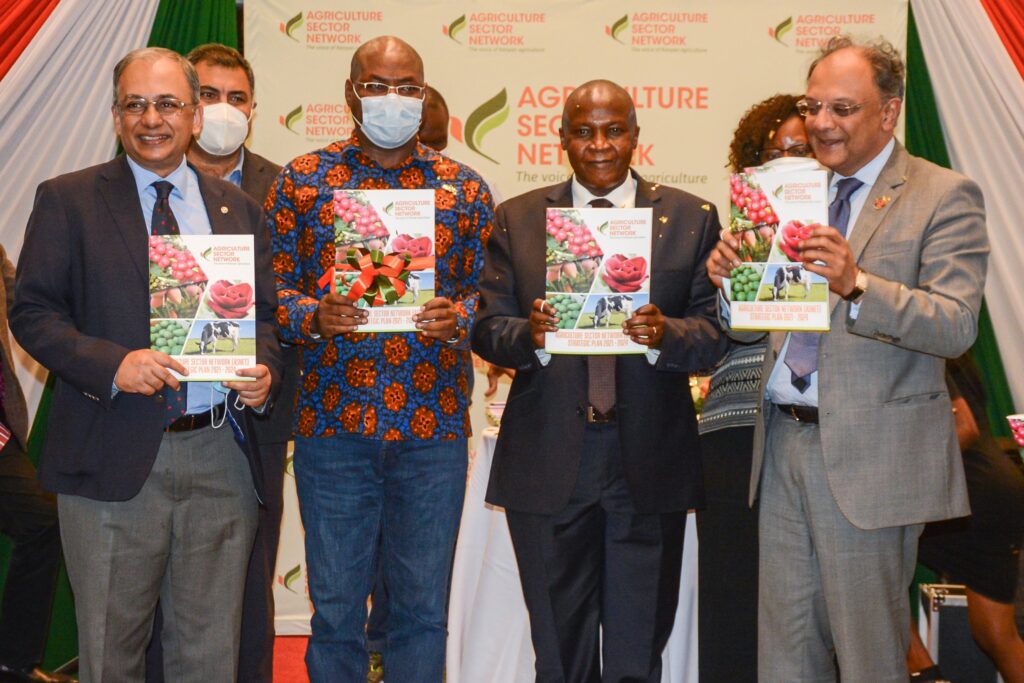Kenya to export more agriculture produce to UK in new trade pact

From Left to Right: Dr. Bimal Kantaria, Agriculture Sector Network (ASNET) Chairman, Harry Kimtai, Principal Secretary, State Department of Livestock, Prof. Micheni Ntiba, Chief Administrative Secretaries (CAS) State Law Office and Department of Justice and Dr.Kevit Desai, Principal Secretary State Department of East African Community (EAC) during the launch of the ASNET Strategic Plan in Nairobi Kenya.
Kenya agriculture sector umbrella body, The Agriculture Sector Network, ASNET, has lauded the recently ratified Economic Partnership Agreement between Kenya and UK saying it will go a long way in boosting economic development and job creation.
The trade deal allows tariff-free market access for Kenyan top agricultural exports to UK including vegetables, fruits, flowers, coffee and tea.
Kenyan vegetable exports enjoy 43 per cent market share in UK while cut flowers command 9 per cent share.
The trade pact also guarantees tariff free access for UK exports to Kenya among them electronics, technical equipment and machinery.
“We thank the Ministry of Industrialization, Trade and Enterprise Development for according players in the agriculture sector the opportunity to present its views on the UK –Kenya Free Trade Agreement. We acknowledge the importance of Public Private Partnerships in driving the Kenyan economy and also enabling a conducive business environment,” said Bimal Kantaria the ASNET chairman.
Agriculture plays a leading role in Kenya’s economy and is a critical pillar to the country’s development strategy. It is estimated that more than 75 percent of Kenyans’ livelihoods depend on the sector, contributes about 33% per cent of the Gross Domestic Product (GDP) and employs more than 40 % of the total population. This calls for facilitation in all the key areas to enable the sector to thrive.
“The milestones achieved with the agreement will facilitate the continued duty and quota-free access of Kenya exports to the UK as they do in the EU market bloc, and secure foreign exchange earnings. The sector acknowledges the agreement will enhance competitiveness of Kenya’s leading agricultural exports namely cut flowers, fresh produce, coffee and tea even as we look forward to the expansion of the list to include other products,” Mr. Kantaria added.
Since the vast majority of Kenya’s poor depend on smallholder agriculture increasing their productivity can contribute immensely to improving food security, increasing rural incomes, lowering poverty levels and growing the economy.







